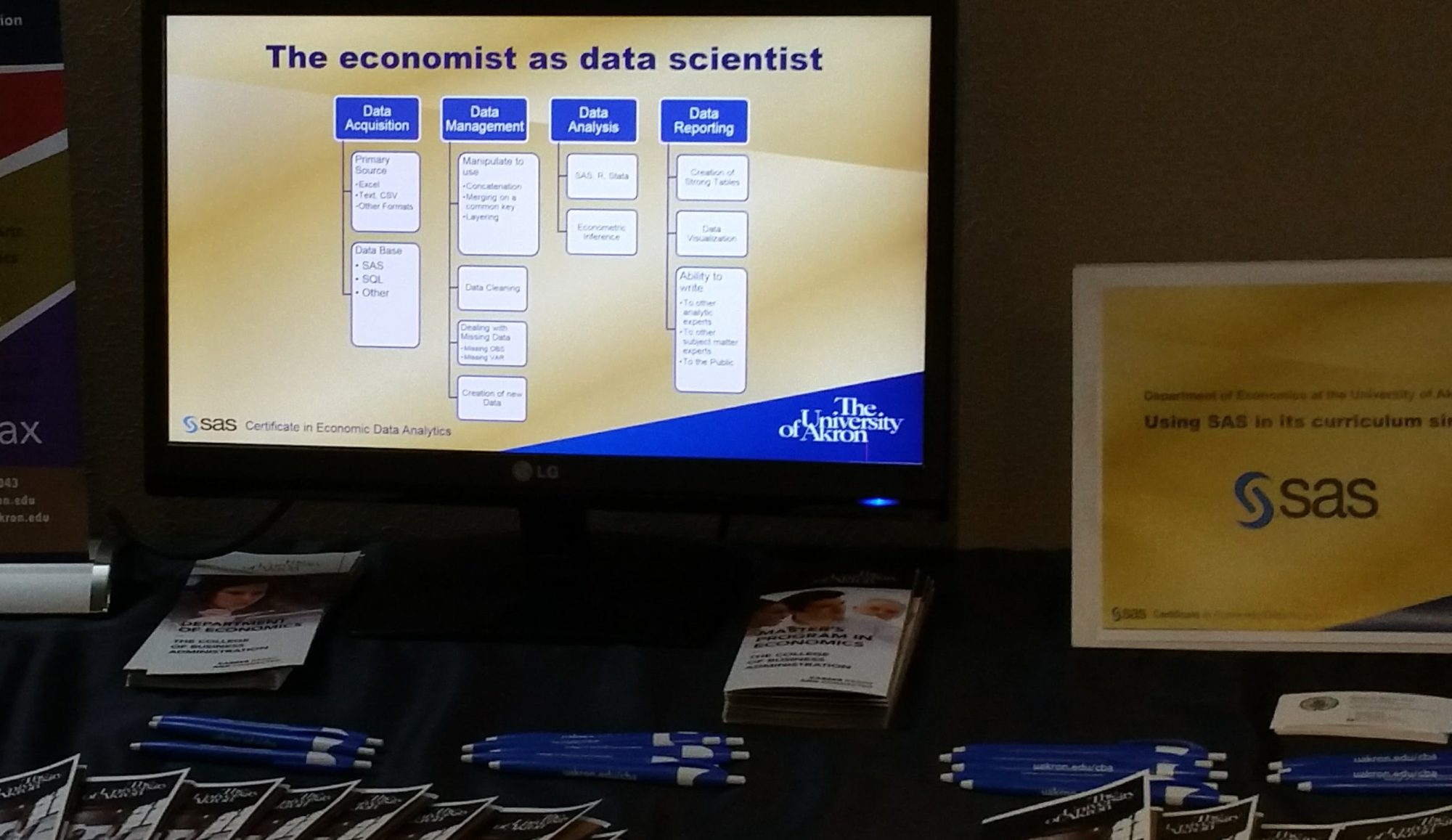(Updated with links and more Dec 1, 2020. Updated with SAS Global Forum announcement on Jan. 22, 2021.)
Professors reluctant to venture into these areas do no service to their students for preparation to enter the real world of work.
Today (November 30, 2020) I presented: “Avoiding Pitfalls in Regression Analysis” during the Causal Inference Webinar at the Urban Analytics Institute in the Ted Rogers School of Management, Ryerson University. I was honored to do this at the kind invitation of Murtaza Haider, author of Getting Started with Data Science. Primary participants are his students in Advanced Business Data Analytics in Business. This is an impressive well-crafted course (taught in R) and at the syllabus-level covers many of the topics in this presentation. I met Murtaza some time ago online and have come to regard him as a first-rate Applied Econometrician.
Ethics and moral obligation to our students
Just as Peter Kennedy developed rules for the ethical use of  Applied Econometrics, this presentation is the first step to developing a set of rules for avoiding pain in one’s analysis. A warning against Hasty Regression (as defined) is prominent.
Applied Econometrics, this presentation is the first step to developing a set of rules for avoiding pain in one’s analysis. A warning against Hasty Regression (as defined) is prominent.
(Update 1/22/2021: My paper, “Haste Makes Waste: Don’t Ruin Your Reputation with Hasty Regression,” has been accepted for a prerecorded 20 minute breakout session at SAS Global Forum 2021, May 18-20, 2021. More on this in a separate post later.)
Kennedy said in the original 2002 paper, Sinning in the Basement, “… my opinion is that regardless of teachability, we have a moral obligation to inform students of these rules, and, through suitable assignments, socialize them to incorporate them into the standard operating procedures they follow when doing empirical work.… (I) believe that these rules are far more important than instructors believe and that students at all levels do not accord them the respect they deserve.”– Kennedy, 2002, pp. 571-2” See my contribution to the cause, an essay on Peter Kennedy’s vision in Bill Frank’s book cited below.
While the key phrase in Peter’s quote seems to be the “moral obligation,” the stronger phrase is “regardless of teachability.” Professors reluctant to venture into these areas do no service to their students when they enter the real world of work. As with Kennedy, some of the avoidance of pitfall rules are equally difficult to teach leading faculty away from in-depth coverage.
The Presentation
A previous presentation has the subtitle, “Don’t let common mistakes ruin your regression and your career.” I only dropped that subtitle here for space-saving and not to disavow the importance of these rules in a good career trajectory.
This presentation highlights seven of ten pitfalls that can befall even the technically competent and fully experienced. Many regression users will have learned about regression in courses dedicating a couple of weeks to much of a semester, and could be self-taught or have learned on the job. The focus of many curricula is to perfect estimation techniques and studiously learn about violations of the classical assumptions. Applied work is so much more and one size does not always fit. The pitfalls remind all users to think fully through their data and their analysis. Used properly, regression is one of the most powerful tools in the analyst’s arsenal. Avoiding pitfalls will help the analyst avoid fatal results.
The Pitfalls in Regression Practice?
- Failure to understand why you are running the regression.
- Failure to be a data skeptic and ignoring the data generating process.
- Failure to examine your data before you regress.
- Failure to examine your data after you regress.
- Failure to understand how to interpret regression results.
- Failure to model both theory and data anomalies, and to know the difference.
- Failure to be ethical.
- Failure to provide proper statistical testing
- Failure to properly consider causal calculus
- Failure to meet the assumptions of the classical linear model.
How to get this presentation
Faculty, if you would like this presentation delivered to your students or faculty via webinar, please contact me. Participants of the webinar can request a copy of the presentation by emailing me at myers@uakron.edu. Specify the title of the presentation and please give your name and contact information. Let me know what you thought of the presentation as well.
You can join me on LinkedIn at https://www.linkedin.com/in/stevencmyers/. Be sure to tell me why you are contacting me so I will be sure to add you.
I extend this to those who have heard the presentation before when first presented to the Ohio SAS Users Group 2020 webinar series on August 26, 2020.
Readings, my papers:
- Explore your data before you rush to analysis, you will thank me later: explorations in cross-section data. Best Paper in Business Leadership at MWSUG 2019.
- Do you know when your data is lying to you? The How of regression analysis with quantitative and qualitative variables. Presented at SCSUG 2019.
-
Ethics Rules in Applied Econometrics and Data Science. This appears as a blog entry at https://econdatascience.com/ethics-rules-in-applied-econometrics-and-data-science/ and is published in the book by Bill Franks (ed.) below.
Recommended Books:
-
Haider Murtaza. Getting Started in Data Science, IBM Press, 2015.
-
Peter Kennedy. A Guide to Econometrics, 6th Edition, Wiley-Blackwell, 2008.
-
Bill Franks (ed.) 97 Things about Ethics Everyone in Data Science Should Know, O’Reilly, 2020.
-
Cathy O’Neil. On Being a Data Skeptic, O’Reilly. (free).
- Judea Pearl and Dana Mackenzie. The Book of Why: The New Science of Cause and Effect.
Other Readings and references:
-
Marc Bellemare, U. MInn, Metrics Mondays blog. In particular, here is our exchange.
-
SAS Documentation: Influence Statistics in PROC REG. Not just for SAS Users.





